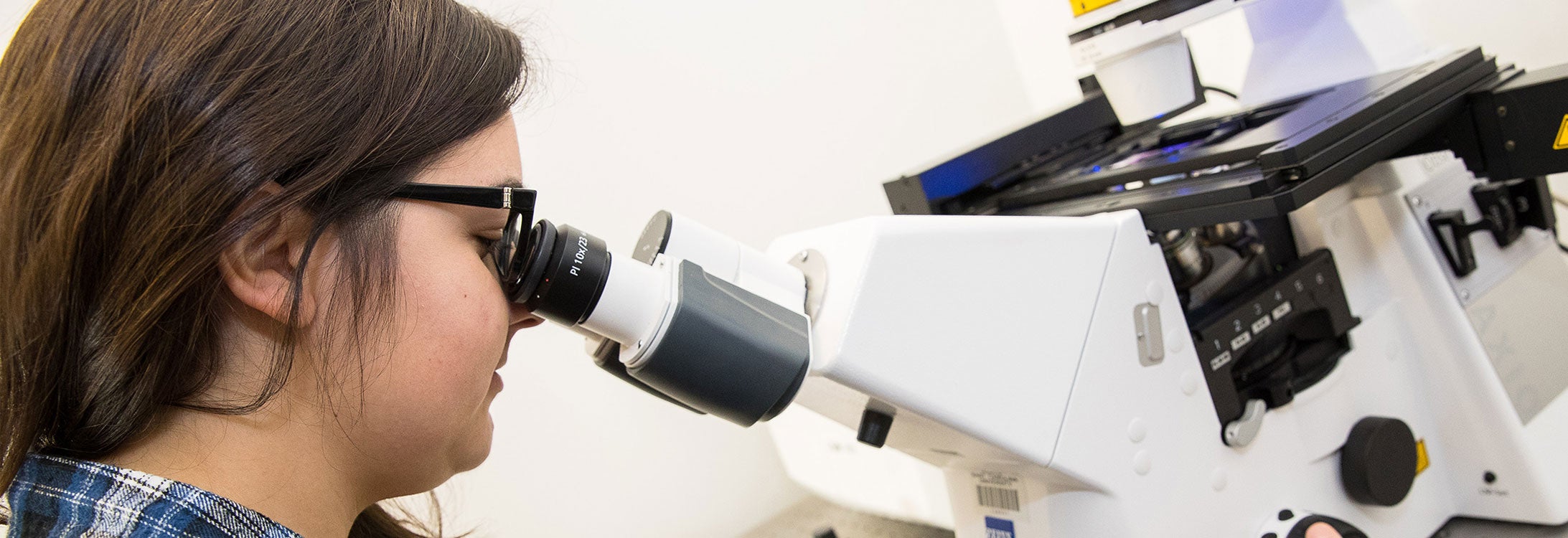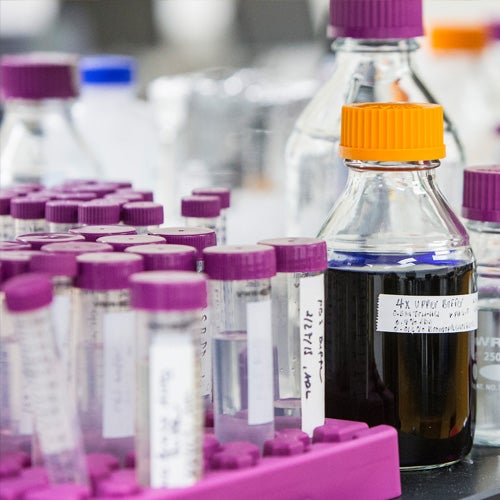Researchers
Many researchers believe that fundamental research is exempt from export control regulations. While regulations do say, “’Technology’ or “’software’ that arises during, or results from, fundamental research and is intended to be published is not subject to EAR,” it’s essential to note that technology or software released, say from a project sponsor to the research team, is not automatically exempted. Additionally, technology available in ECU research laboratories may be subject to U.S. export controls. For example, allowing access to technology about how to dispose of certain biological agents to a foreign person, such as a foreign graduate student, constitutes what is known as a “deemed export” to the foreign person’s country and is controlled. Let’s explore this topic.
First, consider what constitutes fundamental research. Fundamental research means research in science, engineering or mathematics, the results of which ordinarily are published and shared broadly within the research community, and for which the researchers have not accepted restrictions for proprietary or national security reasons.
Second, even if your research meets the definition above, release of technology, such as technical data provided to the research team, may be subject to export controls. If the technical data are not already published, it’s likely those data are subject to export control regulations. Whether or not data release to a non-US person requires a license is dependent on what the data are, and the nationality of the non-US person. The ECU Office of Export Controls and Customs can work with researchers to implement appropriate technology control plans. These might include physical access controls or data security access controls, for example.
Finally, all physical shipments from ECU to another country are subject to export control regulations. The exemption for the defined terms “technology” and “software” does not apply to tangible exports.

Practical Example: Campus Laboratory Working with Bacteria
Suppose you know your overall research is fundamental. A project sponsor will release technical data to you that will be shared with the campus research team. One member of the research team is a graduate student working in your lab. The graduate student is in the U.S. on a J1 student visa and was born in Iran. She most recently lived in Vietnam before coming to ECU’s campus. In fact, she even became a Vietnamese citizen. The project sponsor will supply your ECU lab with Brucella abortus bacteria from its local laboratory in Raleigh.
- Exports Check 1: Is this fundamental research project subject to U.S. export controls? Yes. The unpublished technical data released from the project sponsor to a non-U.S. person, even a graduate student working in the lab on ECU’s campus, are subject to export control regulations. The technical data released to a non-U.S. person may or may not require an export license, however. This depends on both what the technical data includes and the person’s most recent country of citizenship.
Additionally, Brucella abortus bacteria are controlled because of their potential use in chemical and biological weapons, as well as for anti-terrorism reasons. The technological know-how of how to dispose of Brucella abortus also is controlled. Because the non-U.S. graduate student will work directly with the bacteria and will likely will be taught how to dispose of the bacteria, an export license is required because she is a Vietnamese citizen. - Exports Check 2: Suppose the graduate student held a Canadian citizenship. Would an export license really be required? Yes. Brucella abortus, as well as a number of other bacteria, as well as certain viruses, require export licenses for certain technology releases to any non-U.S. person.
- Exports Check 3: Suppose the appropriate export licenses for Exports Check 1 and 2 have been issued. The project sponsor asks that ECU ship a dormant form of the Brucella abortus bacteria to the sponsor’s lab in Austria. The bacteria have been modified, and again, they are dormant. The lab needs only a small amount, and in fact, the researcher is aware that the Animal and Plant Health Inspection Service and the Centers for Disease Control and Prevention have no reporting requirements. There is no commercial value because this is a tiny sample. Do we need an export license to ship this small amount of dormant bacteria? Yes. Regardless of value, and regardless of quantity, a shipment of Brucella abortus bacteria requires an export license.
- Exports Check 4: Suppose you worked with the ECU Office of Export Controls and Customs and now have the export license to ship the dormant bacteria to Austria. There is no commercial value, and the sample fits into a standard FedEx International Letter sleeve. FedEx is asking for a value and won’t let you proceed. Given there is no commercial value, should you just input $1? No. While there is no commercial value, and therefore, there is no selling price to use as the transaction value of the bacteria sample, export regulations require that the value be recorded as the cost to produce, plus the cost of transport to the port of export from the U.S. Assuming that you will use FedEx, UPS, DHL or the USPS to move the bacteria to Austria, simply provide the cost to produce. Reach out to the ECU Office of Export Controls and Customs if you do not know how to determine the cost to produce.
- Exports Check 5: Suppose that you determined the value is $750. The express courier’s site is asking for an AES exemption. Should you just select LVS because this is still a Low Value Shipment less than $2,500? No. All exports that require an export license, regardless of value, must be reported via AES to the U.S. Census. AES simply refers to Census’ Automated Export System.
- Exports Check 6: Ok, then who is authorized to report the shipment to Census? Only the ECU Office of Export Controls and Customs is authorized to report an export shipment to Census. After submission, Census will return a government-assigned reference number called the Internal Transaction Number (ITN). We will provide this number to you. Express couriers have fields where the ITN can be input when no AES exemption is appropriate. Export data are reported in AES via U.S. Customs and Border Protection’s ACE portal. ACE is the Automated Commercial Environment; it can most easily be thought of as a central data gathering, processing and reporting application that can be accessed by various government and non-government parties to import and export shipments and their related transactions.

Practical Example: Campus Laboratory Working with Tissue Specimens
Suppose you need to ship a few paraffin-embedded specimens to a project sponsor’s laboratory in France. The specimens fit easily into a standard express courier’s international letter package. These rodent tissues are to be provided to the project sponsor so the sponsor can perform their histology analysis. Even correctly valued, these would cost no more than $100.
- Exports Check 7: Is an export filing required? Yes. While the shipment will qualify for an AES filing exemption, the U.S. Fish and Wildlife Service requires that form 3-177 be filed with the local FWS office prior to export for some species, such as those that appear in the CITES regulation, or within 180 days of export for others. If the rodent tissue is from common laboratory mice of the genus and species Mus musculus, it must be reported within 180 days of export. The Office of Export Controls and Customs can work with you to ensure this reporting is completed.